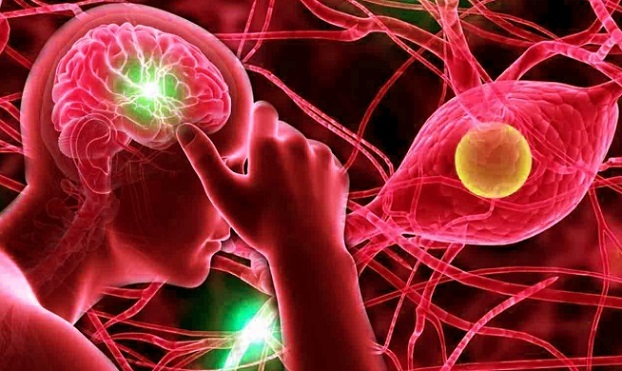Nikhil Prasad Fact checked by:Thailand Medical News Team Jan 22, 2025 3 months, 3 days, 14 hours, 15 minutes ago
Medical News: A recent study delves into the complex relationship between long COVID (LC) and postural orthostatic tachycardia syndrome (POTS), focusing on their shared neuropsychological impairments. Conducted by a team from the University of Deusto in Bilbao, Spain, this research offers a comparative analysis of cognitive performance in LC, POTS, and healthy control groups.
 Neuropsychological and Cognitive Impairments in Long COVID and POTS
Neuropsychological and Cognitive Impairments in Long COVID and POTS
Both LC and POTS are gaining recognition for their profound impacts on daily life. Long COVID, a post-viral syndrome, manifests after acute COVID-19 infection, causing a spectrum of long-term symptoms, including cognitive difficulties. Similarly, POTS, often triggered by infections, affects the autonomic nervous system, leading to symptoms like rapid heartbeat upon standing and fatigue. This
Medical News report emphasizes how these conditions intersect and examines their neuropsychological profiles.
Study Design and Participants
The research involved 129 participants, categorized into four groups: LC with a positive COVID-19 test (30 individuals), LC without a confirmed test (29 individuals), POTS patients (31 individuals), and healthy controls (39 individuals). Participants were recruited from Spanish associations supporting these conditions. Eligibility criteria included age, informed consent, Spanish language proficiency, and exclusion of severe mental illnesses or conditions that might hinder accurate assessment.
Neuropsychological evaluations were conducted online due to pandemic restrictions, ensuring participants could perform tests in a seated position with professional guidance. Tools used included the Stroop Test (for attention and processing speed), Rey-Osterrieth Complex Figure Test (for visual memory), and verbal fluency assessments. Additionally, the Hospital Anxiety and Depression Scale (HADS) was used to evaluate psychological symptoms.
Key Findings on Cognitive Performance
The study highlighted significant cognitive impairments in both LC and POTS groups compared to healthy controls. Deficits were noted in:
-Attention and Processing Speed: Both LC and POTS participants exhibited slower response times and reduced focus, as measured by the Stroop Test.
-Verbal Memory: Difficulties in recalling information, both immediately and after delays, were prominent in all clinical groups.
-Working Memory: Tests revealed challenges in organizing and sequencing information.
-Visuospatial Abilities: Participants struggled with tasks requiring spatial perception and memory, such as copying complex figures.
-Verbal Fluency: Reduced ability to generate words in a given category or starting with specific letters was observed, indicating impairments in language-related cognitive functions.
&a
mp;nbsp;
Interestingly, the LC group without confirmed COVID-19 tests reported the highest levels of anxiety, suggesting that emotional factors might exacerbate cognitive challenges. After accounting for anxiety and depression, some cognitive differences diminished, underscoring the influence of psychological health on neuropsychological performance.
Comparing LC and POTS Cognitive Profiles
While LC and POTS share many cognitive symptoms, subtle distinctions were observed:
-LC patients showed greater impairments in memory and verbal fluency.
-POTS participants demonstrated notable challenges in processing speed and visuospatial tasks.
-Both groups exhibited high levels of anxiety and depression compared to controls, but emotional distress was more pronounced in LC without test-confirmed cases.
Implications and Insights
This study contributes valuable insights into the overlapping yet distinct neuropsychological impacts of LC and POTS. Emotional health emerged as a critical factor influencing cognitive performance, highlighting the need for holistic care addressing both mental and physical health.
Conclusion
The research underscores that both LC and POTS patients face significant cognitive and emotional challenges, affecting daily life and health management. These deficits - including attention, memory, and verbal fluency - can impair social, academic, and occupational functioning. For instance, attention deficits may hinder productivity, while memory issues can lead to missed appointments and medication errors.
Addressing these cognitive impairments requires comprehensive interventions combining cognitive and psychological therapies. Healthcare professionals should consider both domains when designing treatment plans, potentially mitigating long-term consequences.
The study findings were published in the peer-reviewed journal: Clinical Autonomic Research.
https://link.springer.com/article/10.1007/s10286-025-01106-y
For the latest on Long COVID, keep on logging to Thailand
Medical News.
Read Also:
https://www.thailandmedical.news/news/latest-american-study-validates-that-brain-changes-linked-to-long-covid-symptoms
https://www.thailandmedical.news/news/differences-in-long-covid-olfactory-loss-and-other-postviral-olfactory-disorders
https://www.thailandmedical.news/news/malaysian-researchers-find-that-long-covid-individuals-are-likely-to-have-executive-function-deficits-and-altered-brains
https://www.thailandmedical.news/articles/long-covid
https://www.thailandmedical.news/articles/coronavirus
